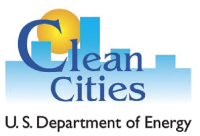Wednesday, July 5, 2017
Washington, DC (July 10, 2017) — The White House has proposed elimination of the Department of Energy’s (DOE) Clean Cities program as part of its 73% cut of the department’s overall Vehicle Technologies program. The Clean Cities program is widely seen as one of the federal government’s most successful initiatives focused on increasing energy security through the deployment of alternative fuels, vehicles, and infrastructure—all domestically produced. 
Each federal dollar the program receives is turned into $10.60 of private investment. The work of Clean Cities coalitions helps stimulate local, regional, and the national economy by providing new jobs in the transportation and clean-energy sector, which includes propane autogas.
The Propane Education & Research Council (PERC) reports that the total number of propane autogas vehicles has grown by more than 35% over the past four years, with about 200,000 vehicles now in use in U.S. private and public fleets. Clean Cities has played an instrumental role in the success of many of these initiatives.
In 2011, the National Clean Fleets Partnership was launched to help America’s commercial fleets accelerate the adoption of alternative fuels. Clean Cities also collaborates with municipalities, law enforcement, public and private fleets, and other stakeholders, including federal agency collaborations such as with the National Parks Service.
At the 2014 Energy Independence Summit, outgoing PERC president and CEO Roy Willis remarked, “For 20 years, Clean Cities has built partnerships with local and statewide organizations to encourage the adoption of alternative fuels and new transportation technology.”
PERC forecasts continued growth for autogas use in public and private fleet markets and predicts, by 2020, an additional 79,900 propane vehicles will be added to U.S. roadways.
You can help save Clean Cities by adding your name to a letter of support at http://bit.ly/2tDlyqx. Also, contact members of the House and Senate directly and urge them to protect funding for the DOE Clean Cities program. —Andrea Young

Each federal dollar the program receives is turned into $10.60 of private investment. The work of Clean Cities coalitions helps stimulate local, regional, and the national economy by providing new jobs in the transportation and clean-energy sector, which includes propane autogas.
The Propane Education & Research Council (PERC) reports that the total number of propane autogas vehicles has grown by more than 35% over the past four years, with about 200,000 vehicles now in use in U.S. private and public fleets. Clean Cities has played an instrumental role in the success of many of these initiatives.
In 2011, the National Clean Fleets Partnership was launched to help America’s commercial fleets accelerate the adoption of alternative fuels. Clean Cities also collaborates with municipalities, law enforcement, public and private fleets, and other stakeholders, including federal agency collaborations such as with the National Parks Service.
At the 2014 Energy Independence Summit, outgoing PERC president and CEO Roy Willis remarked, “For 20 years, Clean Cities has built partnerships with local and statewide organizations to encourage the adoption of alternative fuels and new transportation technology.”
PERC forecasts continued growth for autogas use in public and private fleet markets and predicts, by 2020, an additional 79,900 propane vehicles will be added to U.S. roadways.
You can help save Clean Cities by adding your name to a letter of support at http://bit.ly/2tDlyqx. Also, contact members of the House and Senate directly and urge them to protect funding for the DOE Clean Cities program. —Andrea Young

